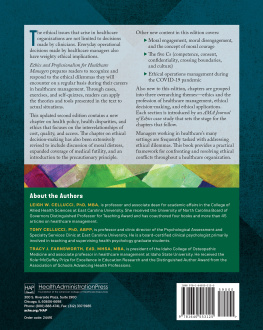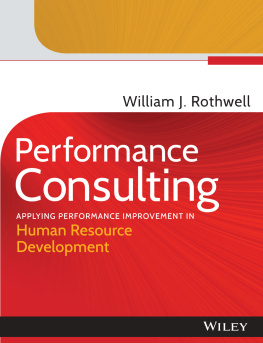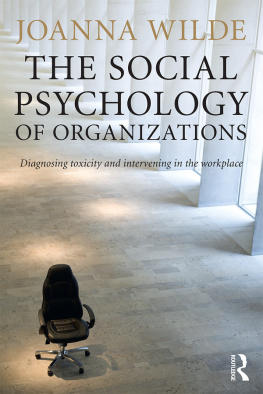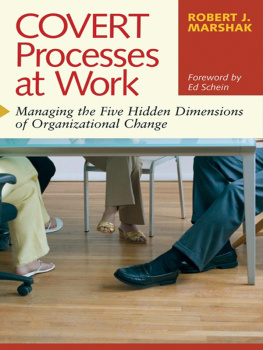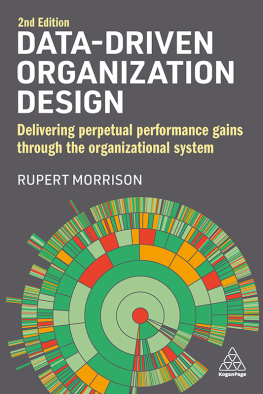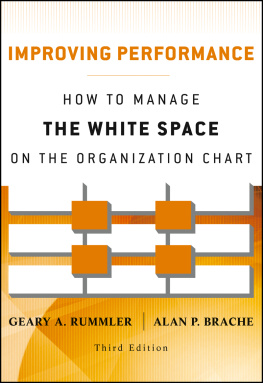Diagnosing Organizations
Applied Social Research Methods Series Volume 8
Applied Social Research Methods Series
Series Editors
LEONARD BICKMAN, Peabody College, Vanderbilt University, Nashville
DEBRA J. ROG, Vanderbilt University, Washington, DC
- SURVEY RESEARCH METHODS (Third Edition) by FLOYD J. FOWLER, Jr.
- SYNTHESIZING RESEARCH (Third Edition) by HARRIS COOPER
- METHODS FOR POLICY RESEARCH by ANN MAJCHRZAK
- SECONDARY RESEARCH (Second Edition) by DAVID W. STEWART and MICHAEL A. KAMINS
- CASE STUDY RESEARCH (Second Edition) by ROBERT K. YIN
- META-ANALYTIC PROCEDURES FOR SOCIAL RESEARCH (Revised Edition) by ROBERT ROSENTHAL
- TELEPHONE SURVEY METHODS (Second Edition) by PAUL J. LAVRAKAS
- DIAGNOSING ORGANIZATIONS (Third Edition) by MICHAEL I. HARRISON
- GROUP TECHNIQUES FOR IDEA BUILDING (Second Edition) by CARL M. MOORE
- NEED ANALYSIS by JACK McKILLIP
- LINKING AUDITING AND META EVALUATION by THOMAS A. SCHWANDT and EDWARD S. HALPERN
- ETHICS AND VALUES IN APPLIED SOCIAL RESEARCH by ALLAN J. KIMMEL
- ON TIME AND METHOD by JANICE R. KELLY and JOSEPH E. McGRATH
- RESEARCH IN HEALTH CARE SETTINGS by KATHLEEN E. GRADY and BARBARA STRUDLER WALLSTON
- PARTICIPANT OBSERVATION by DANNY L. JORGENSEN
- INTERPRETIVE INTERACTIONISM (Second Edition) by NORMAN K. DENZIN
- ETHNOGRAPHY (Second Edition) by DAVID M. FETTERMAN
- STANDARDIZED SURVEY INTERVIEWING by FLOYD J. FOWLER, Jr. and THOMAS W. MANGIONE
- PRODUCTIVITY MEASUREMENT by ROBERT O. BRINKERHOFF and DENNIS E. DRESSLER
- FOCUS GROUPS by DAVID W. STEWART and PREM N. SHAMDASANI
- PRACTICAL SAMPLING by GART T. HENRY
- DECISION RESEARCH by JOHN S. CARROLL and ERIC J. JOHNSON
- RESEARCH WITH HISPANIC POPULATIONS by GERARDO MARIN and BARBARA VANOSS MARIN
- INTERNAL EVALUATION by ARNOLD J. LOVE
- COMPUTER SIMULATION APPLICATIONS by MARCIA LYNN WHICKER and LEE SIGELMAN
- SCALE DEVELOPMENT (Second Edition) by ROBERT F. DeVELLIS
- STUDYING FAMILIES by ANNE P. COPELAND and KATHLEEN M.WHITE
- EVENT HISTORY ANALYSIS by KAZUO YAM AGUCHI
- RESEARCH IN EDUCATIONAL SETTINGS by GEOFFREY MARUYAMA and STANLEY DENO
- RESEARCHING PERSONS WITH MENTAL ILLNESS by ROSALIND J. DWORKIN
- PLANNING ETHICALLY RESPONSIBLE RESEARCH by JOAN E. SIEBER
- APPLIED RESEARCH DESIGN by TERRY E. HEDRICK, LEONARD BICKMAN, and DEBRA J. ROG
- DOING URBAN RESEARCH by GREGORY D. ANDRANOVICH and GERRY RIPOSA
- APPLICATIONS OF CASE STUDY RESEARCH by ROBERT K. YIN
- INTRODUCTION TO FACET THEORY by SAMUEL SHYE and DOV ELIZUR with MICHAEL HOFFMAN
- GRAPHING DATA by GARY T. HENRY
- RESEARCH METHODS IN SPECIAL EDUCATION by DONNA M. MERTENS and JOHN A. MCLAUGHLIN
- IMPROVING SURVEY QUESTIONS by FLOYD J. FOWLER, Jr.
- DATA COLLECTION AND MANAGEMENT by MAGDA STOUTHAMER-LOEBER and WELMOET BOK VAN KAMMEN
- MAIL SURVEYS by THOMAS W. MANGIONE
- QUALITATIVE RESEARCH DESIGN by JOSEPH A. MAXWELL
- ANALYZING COSTS, PROCEDURES, PROCESSES, AND OUTCOMES IN HUMAN SERVICES by BRIAN T.YATES
- DOING LEGAL RESEARCH by ROBERT A. MORRIS, BRUCE D. SALES, and DANIEL W. SHUMAN
- RANDOMIZED EXPERIMENTS FOR PLANNING AND EVALUATION by ROBERT F. BORUCH
- MEASURING COMMUNITY INDICATORS by PAUL J. GRUENEWALD, ANDREW J. TRENO, GAIL TAFF, and MICHAEL KLITZNER
- MIXED METHODOLOGY by ABBAS TASHAKKORI and CHARLES TEDDLIE
- NARRATIVE RESEARCH by AMIA LIEBLICH, RIVKA TUVAL-MASHIACH, and TAMAR ZILBER
- COMMUNICATING SOCIAL SCIENCE RESEARCH TO POLICY-MAKERS by ROGER VAUGHAN and TERRY F. BUSS
- PRACTICAL META-ANALYSIS by MARK W. LIPSEY and DAVID B. WILSON
Diagnosing Organizations
Methods, Models, and Processes
Applied Social Research Methods Series Volume 8
For information:
Sage Publications, Inc.
2455 Teller Road
Thousand Oaks, California 91320
E-mail: order@sagepub.com
Sage Publications Ltd.
1 Oliver's Yard
55 City Road
London EC1Y 1SP
United Kingdom
Sage Publications India Pvt. Ltd.
B-42, Panchsheel Enclave
Post Box 4109
New Delhi 110 017 India
Copyright 2005 by Sage Publications, Inc.
All rights reserved. No part of this book may be reproduced or utilized in any form or by any means, electronic or mechanical, including photocopying, recording, or by any information storage and retrieval system, without permission in writing from the publisher.
Library of Congress Cataloging-in-Publication Data
Harrison, Michael I.
Diagnosing organizations: methods, models, and processes / Michael I. Harrison.3rd ed.
p. cm. (Applied social research methods series; v. 8)
Includes bibliographical references and index.
ISBN 0-7619-2571-6 (cloth) ISBN 0-7619-2572-4 (pbk.)
1. Organizational behavior. 2. Organizational change. I. Title. II. Series.
HD58.7.H3697 2005
302.3'5dc22
2004009245
Printed on acid-free paper in the United States of America.
05 06 07 08 09 10 9 8 7 6 5 4 3 2 1
Acquiring Editor: Lisa Cuevas Shaw
Editorial Assistant: Margo Crouppen
Production Editor: Tracy Alpern
Copy Editor: Dan Hays
Typesetter: C&M Digitals (P) Ltd.
Indexer: Gloria Tierney
Cover Designer: Janet Foulger
In memory of my father, Milton S. Harrison In celebration of the arrival of Romy, our newest family member
Preface
In the decade since publication of the second edition of this book, several trends have emerged that make diagnosis of organizational problems and challenges even more crucial for change management than in the past. Businesses and even some not-for-profit organizations face increasingly uncertain operating conditions and stiff competition at home and abroad. Major business consulting firms have expanded their services in change management. Within firms, managers with technical or business backgrounds, rather than specialists in human resources and planned change, are leading ambitious reorganizations, implementing new technologies, and changing management practices. These changes seek dramatic improvements in productivity, competitiveness, and quality. Without careful diagnosis of organizational conditions and reasoned choice of change mechanisms, consultants and managers risk imitating fashionable management techniques that may not suit the focal organization and can even harm it. Similarly, when managers forge strategic alliances and introduce information technologies that are attractive from a business standpoint, they also need to assess how well these moves fit the less visible human features of their organizations, such as reward systems, culture, work practices, and cross-functional coordination.


